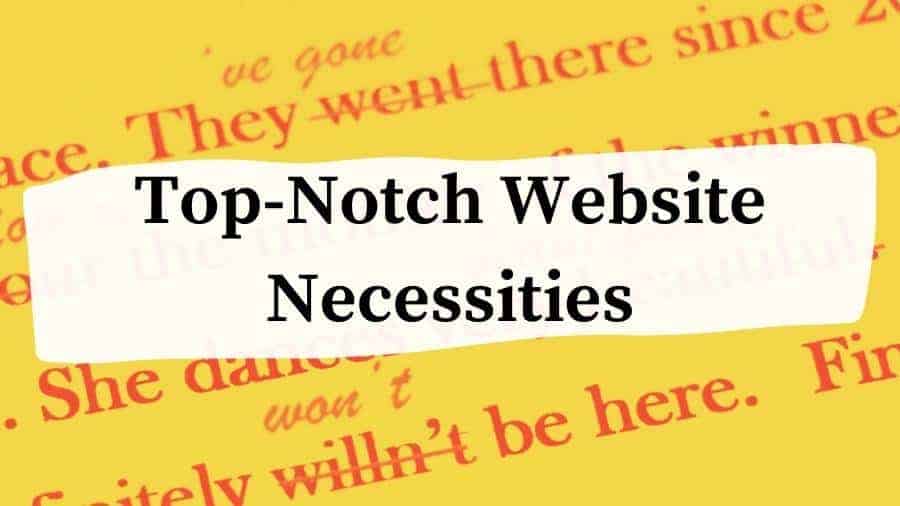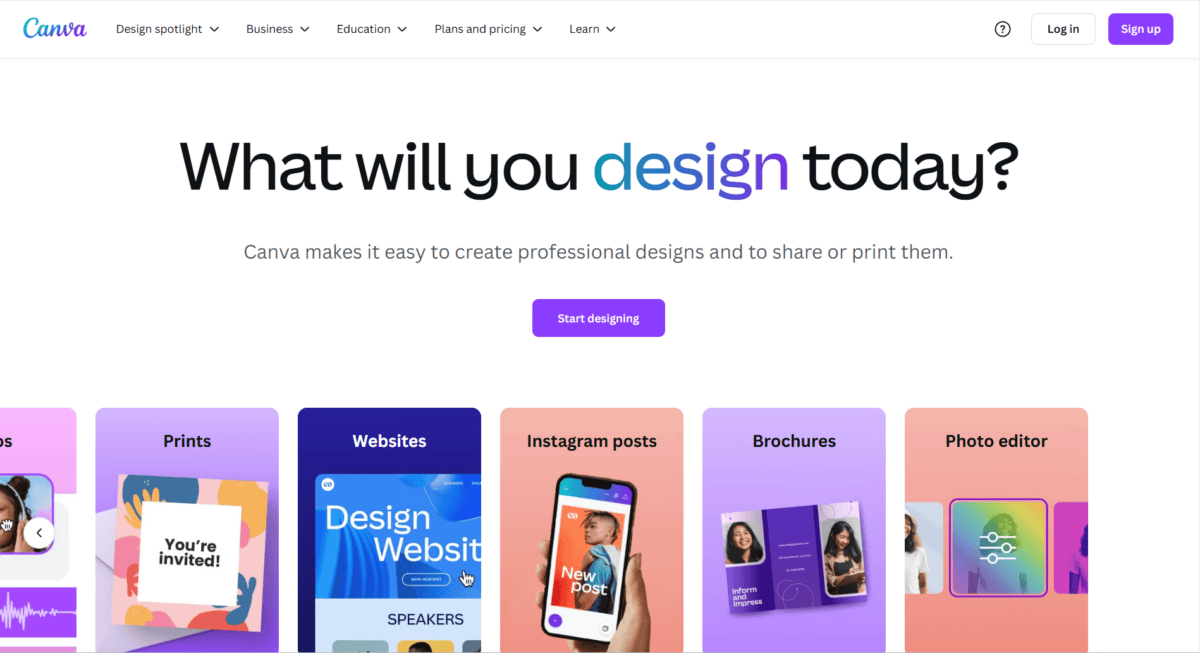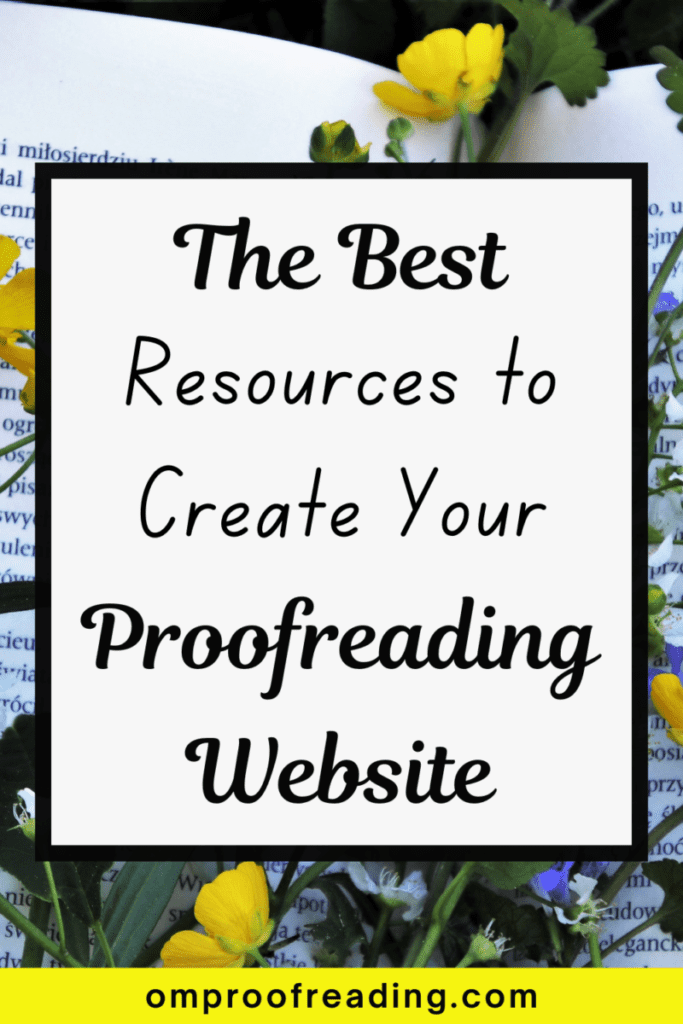This article may contain affiliate links. Please see our affiliate disclaimer in the footer menu for more information. Thank you for your support!

If you want to have an online presence, you’ll need to know about a few resources to create your proofreading website. At the least, you’ll need a web hosting service and a website builder. You may also be interested in places where you can find images to put on your new site.
Bluehost is a popular web hosting provider known for its affordability. WordPress is the most popular website builder available. And a few of the most popular places to get images for your site are Canva, Unsplash, Pexels, and Pixabay.
Let’s take a brief look at using Bluehost and WordPress. I’ll also tell you my favorite place to get pictures for my site.
Helpful Resources to Create Your Proofreading Website
What Is a Web Hosting Provider?
A web hosting provider gives you the space to host (or store) your website on the internet. Anyone with a website must have a hosting provider. Here are a few names of well-known web host providers:
- Bluehost
- GoDaddy
- SiteGround
- HostGator
Why You May Want to Consider Bluehost

Bluehost is a widely known hosting service that has been in business since 2003 and powers over 2 million websites (source). In addition to offering secure hosting for a reasonable price, Bluehost provides around-the-clock support and a wide variety of web tools. You’ll have the resources you need at your fingertips!
If you decide to use Bluehost, the basic plan is all you’ll need. Here are a few key features of the basic plan:
- A free domain name (for 1st year)
- A free SSL certificate
- 24/7 chat support
- 30-day money-back guarantee
I’ve been using Bluehost ever since I started my website and have been very pleased with the service.
If you use them as your hosting provider, they’ll give you a free domain name for your site’s first year.
A domain name is another element that every website owner must have.
What Is a Domain Name?
A domain name has two parts: your website’s name and an extension (e.g., .com, .org, .net).
For example, my domain name is omproofreading.com.
My website’s name is Om Proofreading, and the extension is .com. That’s it! 😊
I wrote an in-depth article about what to call your proofreading business if you need some suggestions. This post discusses important considerations when naming your company and popular methods for generating names.
Now let’s discuss website builders.
What Is a Website Builder?
A website builder is a tool that lets you create a website without coding knowledge.
Here are a few of the most popular website builders:
- WordPress
- Weebly
- Squarespace
- Wix
Why You May Want to Consider WordPress
WordPress powers over 40% of all websites on the internet.
This reason alone speaks volumes for WordPress, but if you’d like to know more about the advantages of this website builder, please feel free to check out this article on WPBeginner.
As the article points out, WordPress is free to use and beginner friendly. I’ve been quite happy with WordPress as my website builder and Bluehost as my hosting provider.
Now, on to images.
Places to Find Images for Your Website

If you’d like to put images on your site, I can recommend a few popular places.
When I first created my website, I assumed it was perfectly fine to use free images from places like the following:
- Canva
- Unsplash
- Pexels
- Pixabay
That seemed to be the consensus from everything I had read, so I recommended these sites as well.
But I later discovered that, in rare cases, using these sites could be problematic.
Here’s an article that explains the potential legal issues of using free images from sites like the ones I mentioned above.
As soon as I became aware of the potential downside, I started paying for the Canva Pro plan.
It gave me peace of mind to pay for the photos I was using.
I’m not a legal expert, so I’m not sure how much more protection (if any) I’m afforded by paying for the photos.
However, since it makes me feel more secure, I figured it was worth it.
Plus, Canva Pro offers a few features I like that aren’t available with the free plan.
I enjoy using Canva to create images because it makes me feel like a graphic designer, even though I have zero graphic design skills. 😉
Here are a few other sites that offer paid images:
- 123RF
- Deposit Photos
- iStock
- Shutterstock
- Adobe Stock
I hope this post has given you valuable information about resources for your proofreading website.
Likewise, I hope your business flourishes and you enjoy being on error patrol with me!
If you’re interested in pumping up your proofreading productivity, feel free to read my article “7 Proofreading Accessories to Increase Your Productivity.”
Best wishes to you!
“Simplicity, patience, compassion. These three are your greatest treasures. Simple in actions and thoughts, you return to the source of being. Patient with both friends and enemies, you accord with the way things are. Compassionate toward yourself, you reconcile all beings in the world.”
– Lao Tzu

